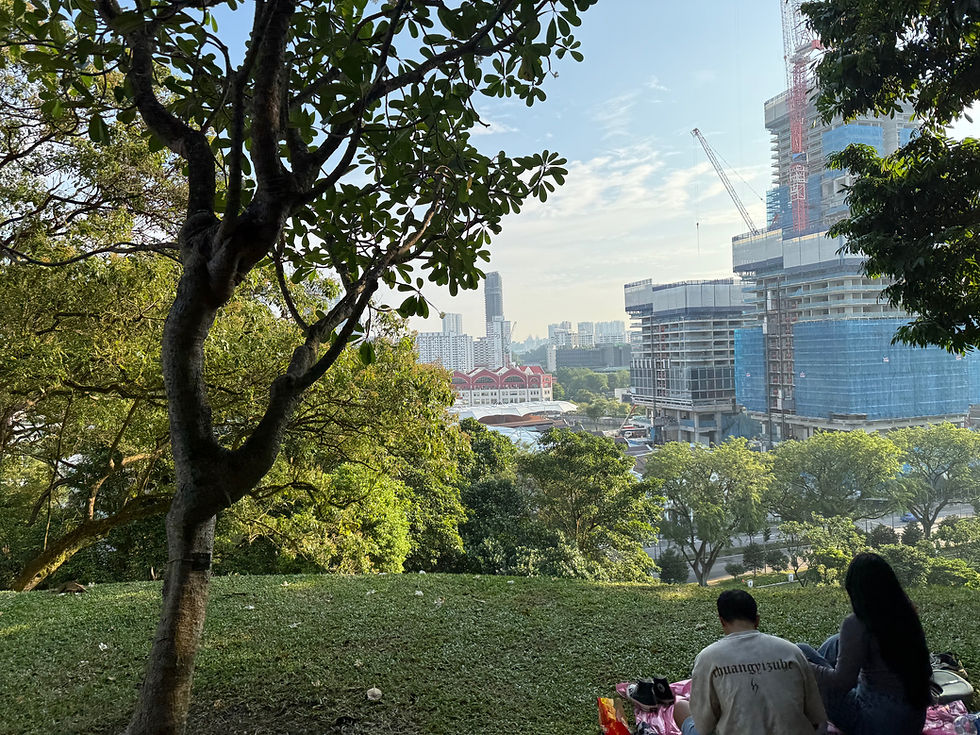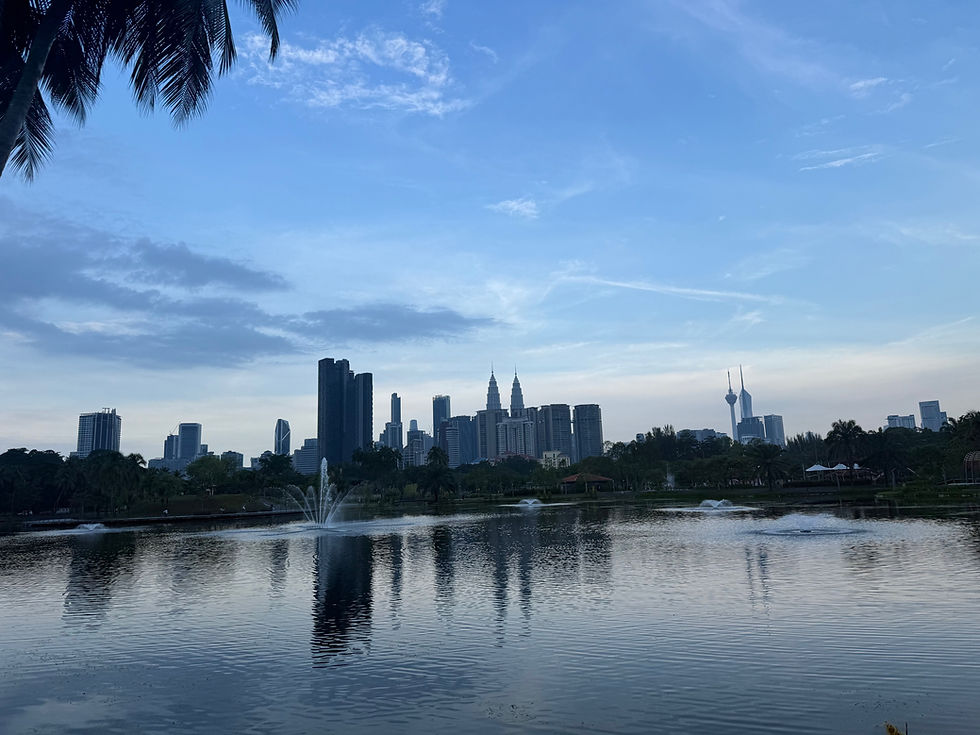On Western Reactions to the Korean Crisis: It's Not Me, It's You
- Nikola Ranick
- Dec 23, 2024
- 5 min read
Updated: Mar 12, 2025
The coup attempt in South Korea is not nearly as egregious when you pet it in context with Korean History.... and Asian History... AND Global History!

Tis the Season! No, not Christmas, but the return of South Korean presidential scandals! For those unfamiliar, incumbent president Yoon Suk Yeol, who narrowly won two years ago, now faces low approval ratings, an opposition-controlled parliament with significant budget authority, and the constant threat from the North. In a desperate move, he claimed North Korean insiders had infiltrated the government and ordered martial law. However, the defense minister and military implemented it reluctantly as massive public protests rocked the country and Yoon's plummeting approval ratings fell event farther. Amidst these protests, opposition lawmakers sneaked into parliament and voted to end martial law, a decision the military seemed to greet. Now Yoon faces impeachment, which is currently before the Supreme Court (a judicially-decided process distinct from the American system).
What’s the saddest aspect of this scandal? Its lazy execution? Its blatant indignation?? The fact that it still isn’t over??? No. The real tragedy is that this is a continuation of a long history of coups and incompetent leadership in The Land of the Morning Calm. Just a decade ago, President Park Geun-hye was impeached and convicted for graft and influence peddling, only to be pardoned by her successor. Additionally, two other presidents have faced prosecution for graft: One is currently in prison, while another took his own life (a tragic act that Yoon’s Defense Minister has already attempted to replicate).
As of 2018, half of all former presidents were in jail - and Yoon is likely to join.

This should be surprising in a country such as South Korea, given its country's wealth, culture, and democratic progress. And many global commentators are suggesting as much. In orderly East Asia, such behavior resembles the weaker democracies of Northern Africa, where the average income is nearly $40,000 lower. Political instability is unexpected in a nation that has seen its income rise from some of the lowest to some of the highest in a single lifetime. Even more authoritarian yet wealthy Middle Eastern countries maintain coherent political systems, even while undemocratic. Consequently, constituent support, investor confidence, and overall public finances have suffered, as both businesses and households dislike the unpredictable shifts between extremes.
Interestingly, as noted by Foreign Policy (BUT I thought of it first!!!), the current state of the South Korean presidency resembles that of Peru, a poorer semi-narcotic state with starker inequities, greater diversity, and more regional divides. Like Korea, Peru has had more than four presidents prosecuted (three are currently imprisoned),experienced an attempted coup in recent years, and saw a successful coup in the 1990s that retained influence through the politically active children of its leader. I apologize to my southern friends, but comparing any country's system to almost any Latin American nation's presidential history is not at all a compliment—this comparison certainly isn't. Of course, South Korea is not even close to as unstable as Peru. However, the level of political instability in South Korea should not be surprising to global observers. After all, they should know better.

Time for my hot take: As unfortunate as this development is for South Korea, it shouldn't necessarily be surprising for the following reasons:
It is a much newer democracy
It comes from a region of the world that is not as stable as it appears
Our Western lens creates an illusion of stability in wealthy countries that just isn’t historically accurate.
Granted, South Korea is a much newer democracy, only completely transitioning in the early 2000s. Before then, the nation faced an array of dictators and coups itself, including the rule and subsequent assassination of General Park, the last impeached one’s father. In this respect then, not only are democratic rules new, but remember the adage: It takes one year to change political leadership, ten to change policy, and 100 for culture. Accordingly, South Korea is still very much in a cycle of instability, one it should be commended for taking strides to get out of, even if it still does step back into it at times. After all, historical Korea was too often a vassal state between Japan, China, and whatever imperial power could grab hold of it. Even with a tight homogenous culture, that is a chronic social realignment. Remember, too, that the Korea's are still technically at war; wealth can bury many things but cannot overcome long-standing gyrations in geopolitics for a peninsular nation.
But this instability is in more than just inherent to Korean soil: Look at the rest of the region! Sure, Japan maintains stability, what after a long period of feudal law and chronic imperialism that rivals similarly 'stably unstable' China. Beyond that, what is left? Thailand itself has experienced somehow even more coups than Korea, Myanmar is ensconced in a civil war, Vietnam, Laos, and Cambodia are all authoritarian states that teetered on division, genocide, and altogether state failure less than 50 years ago, and no, I will not dissect the infant democracies of the Philippines and Indonesia. These latter two really hit the nail on the head; they are a lot more similar to South Korea and Japan than we give them credit for. The only differences, though big nonetheless, are the degree of their diversity and, of course, their overall wealth.

But that is not exactly an Asian illusion either. Once more, we Western scholars must look beyond our pearl-clutching to the painful reality of disorder that lies at our doorsteps. Currently, many northern European states, as well as Germany and France themselves, flirt with fascism, something which we all know is but a lifetime removed. And that isn’t even the farthest example: Portugal and Spain were barely teenagers in their democracies before the Korean chain, and the Iron Curtain broke down less than forty years ago. Factor in the sad reality that much of the American South remained a quasi-democracy well into the 1960s, and it looks like South Korea is just as flawed as the rest of us. It is not exactly a bright side but does provide context: We are so afraid of preventing the normalization of political violence, coups, and political instability. But we cannot stop the normalization of something that is a) either already normal or b) has a rich history of being mainstream.
So then what to make of South Korea? A shock, no, but still very sad! This shouldn’t be the norm and in many respects, the response of the Korean people bolsters that. But it is that latter part which itself is decisive: For all the respect of rules and norms, they only matter if the people maintain them. Were it not for the social contract that bound South Koreans together as such, they very well could still be under martial law or even full-blown dictatorship. At the end of the day, we can only hold our leaders accountable if we hold ourselves as well. In a country that seemingly cheered the vigilante assassination of a healthcare CEO days before another teenager shot up another school likely with the same anarchistic motives, America would do well to follow the South Korean example.





Comments